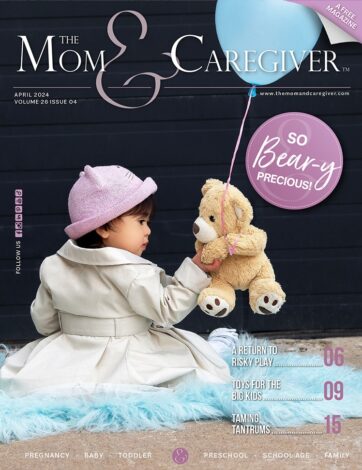Breastfeeding and Its Benefits
Breastfeeding (also referred to as “nursing”) is the process of feeding your child breast milk.
Deciding to breastfeed is a personal decision. The Baby-Friendly Initiative helps you make informed decisions about breastfeeding (1).
The World Health Organization and The Public Health Agency of Canada highly recommend that mothers breastfeed their newborns, as breastmilk is the best nutrient source for a baby (2) (3). Health Canada also encourages mothers to feed their newborns only breast milk exclusively for the first six months and sustained for up to two years or longer with complementary feeding to support nutritional needs (2).
To experience the full benefits of breastfeeding, it is important that you start breastfeeding immediately after childbirth so baby can have the “first milk” that your body produces (4). The first milk, called colostrum, is very rich in nutrients, and contains antibodies to help your baby fight off germs (4). It also protects baby’s intestines and allows them to pass meconium, which is the baby’s first poop (4). Afterwards, your body learns to make enough milk by frequent breastfeeding, and your baby learns to nurse well (4).
The early days after childbirth are very important as this is the time when you and your baby get to know each other by spending quality time together, having skin-to-skin contact, understanding cues and bonding (5). Breastfeeding helps reduce hospital visits by preventing common childhood infections and illnesses such as ear infections, allergies and upset stomach (3). It also helps your baby’s brain development (3).
Mothers are not left out of the benefits. Breastfeeding can lower the risk of breast and ovarian cancer, bone disease and diabetes (6). It also assists in losing pregnancy weight as you burn extra calories during breastfeeding (6). Breastfeeding saves time and money as it is readily available anywhere on demand. The milk is always warm and clean so no need to clean bottles and warm milk. It also protects the environment, as there is no wastage (6).
Breastfeeding is such a wonderful and beneficial experience for mother and baby and is highly recommended from birth to six months and beyond. If you have questions about breastfeeding, call 519-663-5317 #3 to speak to a public health nurse or consult www.healthunit.com/breastfeeding.
References
1 The Baby-Friendly Hospital Initiative. (2021). UNICEF Canada: For Every Child. Retrieved
from https://www.unicef.ca/en/article/the-baby-friendly-hospital-initiative
2 Public Health Agency of Canada. (2021-11-16). Breastfeeding your baby. Retrieved from
http://www.publichealth.gc.ca/breastfeeding
3 World Health Organization. (2022). Health topics: Breastfeeding. Retrieved from
https://www.who.int/health-topics/breastfeeding#tab=tab_1
4 World Health Organization. (2018). Health topics: Breastfeeding. Retrieved from
https://www.who.int/news/item/31-07-2018-3-in-5-babies-not-breastfed-in-the-first-hour-
of-life
5 Public Health Agency of Canada. (2019). Breastfeeding. Government of Canada. Retrieved
from https://www.canada.ca/en/public-health/services/publications/healthy-
living/maternity-newborn-care-guidelines-chapter-6.html
6 INFACT Canada. (2006). The risks of formula feeding. Retrieved from
http://www.infactcanada.ca/RisksofFormulaFeeding.pdf
Submitted by Edna Asamaka WCTF-5
For the Middlesex-London Community Early Years Partnership














